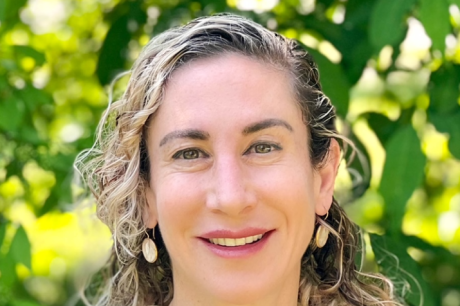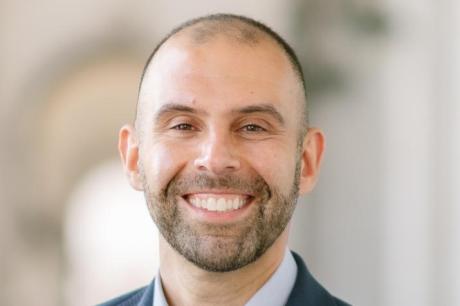By Chelsea McMullen, first year MSc-GH student
As a first year student in the Duke Global Health Institute’s Master of Science in Global Health program, I have the unique, unparalleled opportunity to develop, carry out and evaluate my own master’s thesis project on the global health topic of my choice. Mentor declarations and anticipated project topics are due this week, but my classmates and I have been thinking through some important questions all semester: What is my goal for this project? Is the intended purpose to develop or sharpen our research skills, publish a paper, or learn about a new subject? Do we want to work in a specific location, study a specific topic, or work with a specific person or group? As I answered these questions for myself, I learned a few lessons along the way.
Lesson #1: First, define your educational and professional goals
I have always been intrigued by health care systems in rural and remote locations, including traditional medicine. On service and study abroad trips to rural Appalachia, Central America and China, I began to see global patterns in burden of disease that were influenced by social, political, and economic drivers. Much like in the biological research I had done in undergrad on a rare malignancy called chordoma, I wanted to understand the complexity of it all and transition to a type of research that could have measurable impact.
The Master of Science in Global Health program is exactly what I was looking for to match my goals: a deeply interdisciplinary program of study that would prepare me to tackle incredibly complex and intertwined issues that affect millions of people worldwide. It would be the place where I could work with world-class researchers on incredibly important issues, while taking classes in crucial subjects like ‘Global Health Challenges,’ and ‘Globalization and Governance’ to find my niche.
Upon entering the program, I hoped to develop my research skills outside the lab, but was torn between continuing to pursue my longstanding interests in global cancer and traditional medicine, or delving into the realm of infectious disease. I did not yet have a geographic preference, but knew I wanted to extend my stay and learn a language. I didn’t yet have a specific faculty mentor in mind, but what I did next was key to finding one.
Lesson #2: Immerse yourself in all that Duke has to offer and keep an open mind
Seek advice from knowledgeable staff. DGHI staff members like Lysa, Sarah and Michael gave me critical feedback on developing my project, connecting with faculty, and finding funding.
Go to research talks. With an almost overwhelming number of faculty and guest lectures at DGHI and Duke each week, there is ample opportunity to introduce your self to new and thought-provoking ideas.
Engage with your classmates. Eleven students from my small cohort are international, and all of us have incredible international research or professional experiences to share. Such a diverse group offers a collaborative learning environment that I have not experienced anywhere else. It’s easy to be inspired by your peers at DGHI!
Read, A LOT! Immersing yourself in the literature on topics you care about can help direct you to a specific question you’d like to study. Duke Librarians are also a great resource for finding sources and citing them correctly.
Seek out and engage with faculty. I found that faculty - often leaders in their field - are not only available to students, but are excited to work with us. I had great discussions with Dr. David Boyd about the westernization of traditional medicine and with Dr. Yousuf Zafar about its role in the treatment of cancer in low- and middle-income countries. These meetings can evolve into exciting mentor relationships or even help develop your current or future research projects.
Apply for a Research, or Teaching Assistantship (RA/TA). This is the reason I did not pursue global cancer and traditional medicine; instead, I felt led to pursue my growing interest in infectious diseases. As an RA for DGHI faculty member Dr. Chris Woods, I was able to work closely with him and his colleagues on an interspecies disease transmission project in the Democratic Republic of the Congo. The relationship I’ve built with Dr. Woods has been integral for both improving my research skills and helping to guide my own project development.
Lesson #3: Find your niche and be open to collaboration
Sometimes it is about who you know and who they know. I enjoyed working with Dr. Woods on his project so much that it ultimately became the focus of my research project, and he became my primary mentor. But project development in global health is a fluid, adaptive process. I’ve continued engaging with other Duke faculty and have read their published papers to contextualize my work and flesh out my research question.
Recently, Dr. Woods advised me to meet with Dr. Charles Nunn, a new Duke professor in evolutionary anthropology and global health, who works in Madagascar and is an expert in disease ecology and evolution. I was excited to learn that his area of work seemed to match well with my interests. We discussed a possible master’s project measuring the prevalence of disease in rodents and their level of interaction with humans— a new area of research for me that I know will enhance my understanding of global health. Soon after, Dr. Nunn became my second mentor.
I’m confident both of my mentors, Drs. Woods and Nunn, are the ideal faculty who can offer expert advice and feedback as I continue the process of developing and implementing my thesis project. What excites me the most is the potential to someday incorporate all of my topic interests and experience into a dissertation or highly-focused career path.
I am humbled every day by the extraordinary faculty and academic excellence at Duke and DGHI, and I cannot wait to see how my master’s thesis project evolves over coming months!



